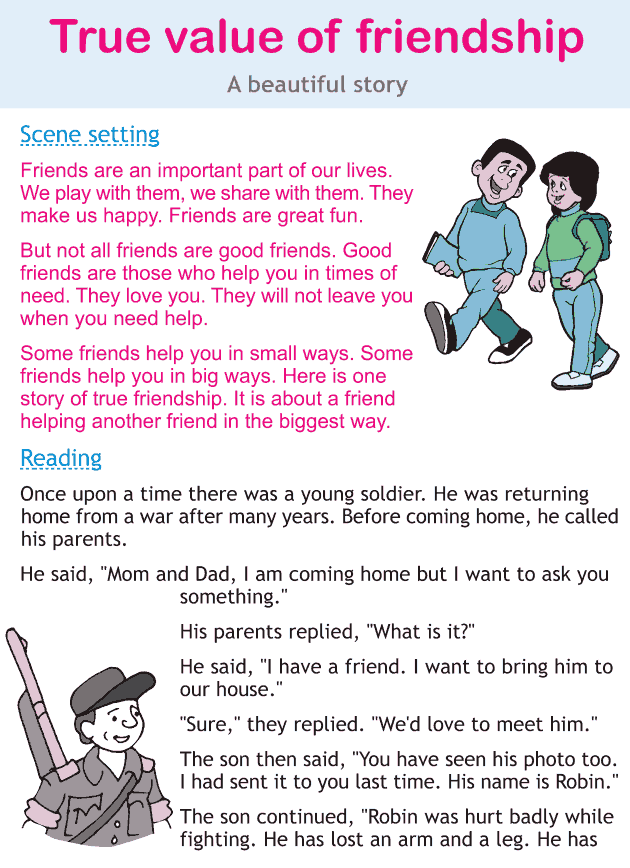How to tell your child you are splitting up
How to Tell Your Child You Are Splitting Up
Source: Dboybaker via Flickr
Children thrive on predictability. They feel more secure when they have dependable routines. That’s why parents should typically approach upcoming changes slowly, carefully, and with a plan, whether it’s a new caregiver, a new home, a new school, or a change in family structure.
Once you and your partner have decided to separate, how do you talk to your young child? What can you say and do to help them get through the process as healthy and resilient as possible?
1. Share the information soon. Young children are remarkably perceptive and will know something is going on. Secrecy can be more damaging than knowledge, because it leads to all kinds of worries, most of which are worse than the impending reality.
2. Talk as a family. When you decide you are separating, and have established a plan for moving forward with it, tell your child together with your partner, and include all your children together in the conversation.
3. Choose a good time. Don’t have the divorce discussion when one or more family members are tired, hungry, or needing to be somewhere soon. It may turn out to be a very short discussion—your child might not have any questions and just want to get on with playing—but be available in case they want to talk, shout, argue, cry, or snuggle.
4. Keep it simple. A young child doesn’t want to know about—and can’t understand—the complex reasons for the separation. In your first conversation about it, the simple facts are enough—where you’ll all be living, who’ll take them to school and pick them up, how often they’ll spend time with each parent, the fact they will still have two parents.
5. Emphasize your abiding love and protection. A young child’s biggest fear is that they’ll lose one or both of their parents. Reassure your child as many times as necessary that you will continue to love them forever, no matter what, and that you will keep them safe.
6. Be loving, calm, and confident. Don’t burden your little one with your anger, worries, or issues. They need you to be strong and confident in your assurances that everyone will be fine. Save the drama for your friends and therapist.
7. Be kind, caring, and respectful with—and about—the other parent. This will help your child feel safe in the world. No matter the problems you have with your partner, your child will be happier, healthier, and stronger if they feel they can count on you working together on their behalf.
8. Take ownership of the change. Be on the lookout for signs your child blames himself (most kids do). They might become excessively good and compliant, for example, or antagonistic and contrary. Reassure them that it is you and the other parent who needed to make the change and that it is not their fault.
9. Wait and listen. Be alert, attentive, and available for the next several days, weeks, and months. Some young children are filled with immediate questions, and others take months to process the information.
Some young children are filled with immediate questions, and others take months to process the information.
10. Answer your child’s questions as honestly as possible. Don’t try to sweep their worries under the rug. Be sympathetic, patient, and as honest as you can.
11. Be patient with regression. Some common reactions to a change like this include fear, anger, temper tantrums, tears, clinginess, emotional instability, anxiety, whininess, and general irritability. Your child might have trouble getting to sleep, start bedwetting, or have nightmares that require your calm, reassuring presence.
12. Maintain the old routines and schedules. Consistent care and nurturing are more important than ever in any transition, including divorce. They reassure your child that the world is safe and predictable. Meals, outdoor play, bathtime, and bedtime routines are more important than ever now.
13. Tell their teacher or caregiver. Prepare the other adults in your child’s life for possible mood changes and questions. Ask them to be sensitive and understanding, but not to ask the child about it or mention it unless the child introduces the topic.
Prepare the other adults in your child’s life for possible mood changes and questions. Ask them to be sensitive and understanding, but not to ask the child about it or mention it unless the child introduces the topic.
14. Be patient with your own emotions, and your partner’s. The more mature you and your partner can be during the process of separation, the better for your child. But this is a challenging time for most parents, emotionally, physically, and financially. If you or your partner is angry or upset in your child’s company, accept that, and apologize to your child, explaining that change is always difficult. Emphasize your confidence you will get through it, and that everyone will be fine, as well as your understanding that it won’t be easy.
15. Don’t drag it out. Once you have told your child it is happening, get on with the practical business of establishing new situations and routines.
Change is stressful, but it doesn’t have to be damaging. A child whose parents are confident, mature, loving, and trustworthy can make it through separation and divorce with better coping skills and strengths. This is a critically important time in your young child’s life, a time to rise to the responsibility of being a parent.
A child whose parents are confident, mature, loving, and trustworthy can make it through separation and divorce with better coping skills and strengths. This is a critically important time in your young child’s life, a time to rise to the responsibility of being a parent.
Further Reading
- Yes, You Can Raise Happy Children After a Divorce by Wendy Paris
- Should You Stay Together Only for the Kids? by Dona Matthews
How to tell your child you're getting divorced (ages 5 to 8)
BabyCenter selects products based on the research of our editors and the wisdom of parents in the BabyCenter Community. All prices and details are accurate at the time of publication. We may earn a commission from shopping links.
What your school-age kid knows – and needs to know
School-age kids know that divorce means their parents' marriage has ended. They may have friends whose parents are divorced and may be familiar with the concept of a mom and a dad living apart.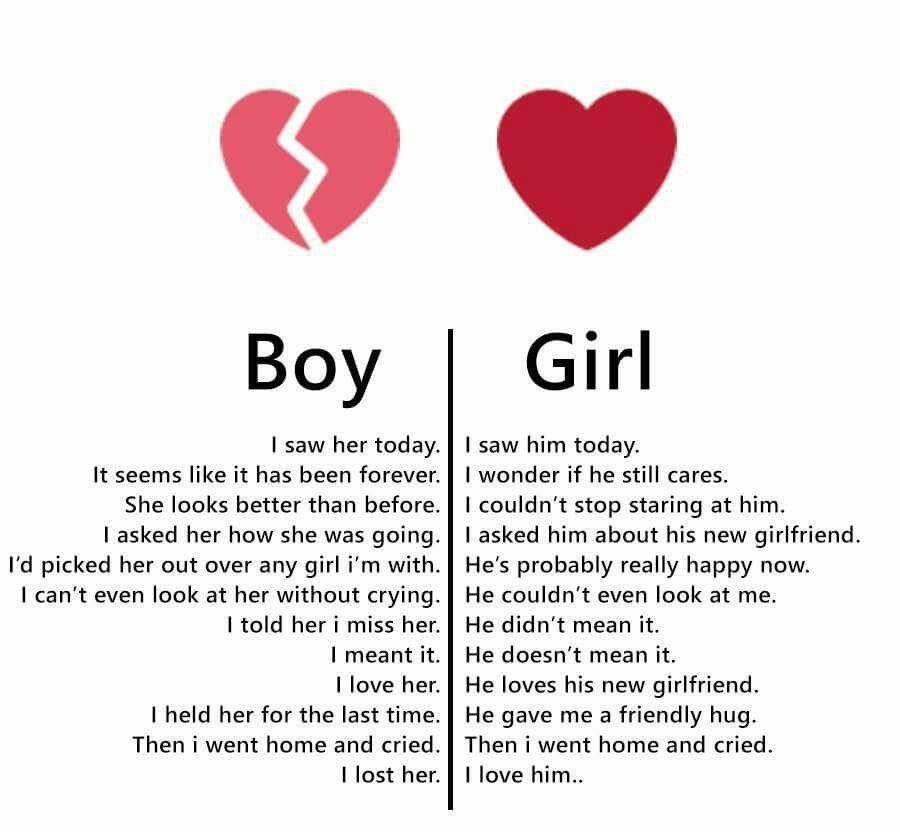 "Expect them to be most interested in how their own lives will be affected," says Leah Klungness, a psychologist and coauthor of The Complete Single Mother. They'll be anxious about things like where they'll live and go to school, and they'll likely have a lot of detailed questions for you, so be prepared with some answers. Most important is to assure them that they'll be cared for and loved, no matter what.
"Expect them to be most interested in how their own lives will be affected," says Leah Klungness, a psychologist and coauthor of The Complete Single Mother. They'll be anxious about things like where they'll live and go to school, and they'll likely have a lot of detailed questions for you, so be prepared with some answers. Most important is to assure them that they'll be cared for and loved, no matter what.
Don't be surprised if your child shows signs of insecurity or regression, becomes extra mischievous, uncooperative, or clingy, or seeks a lot of attention from you and others during this difficult time. Even the most amicable of separations creates an earth-shattering change for any child. "The major divorce issues are change and loss," says psychologist Anthony Wolf in his book Why Did You Have to Get a Divorce and When Can I Get a Hamster? Kids find both to be very scary. Some kids will be openly sad or angry, while others may deny they have any feelings at all about it.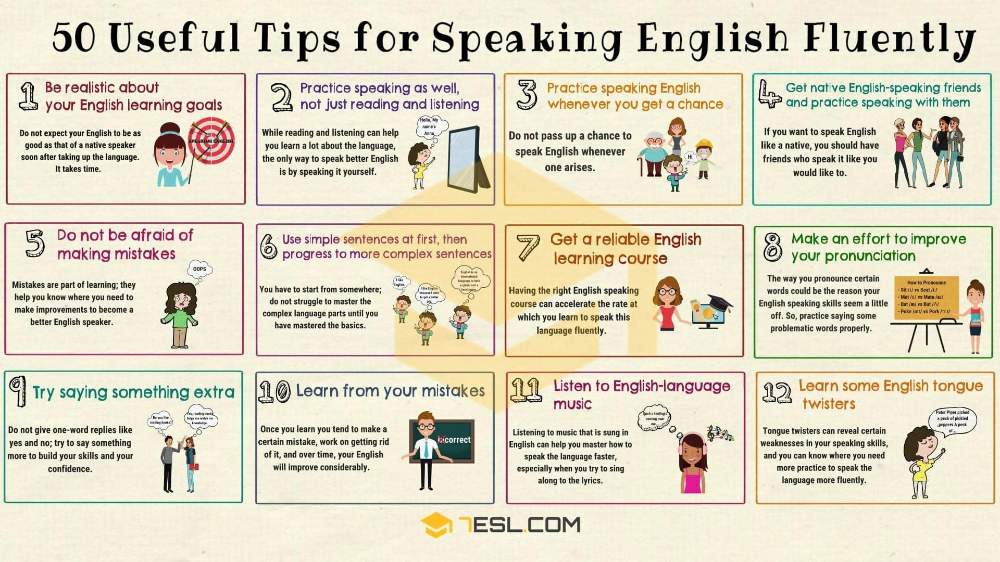
Yet school-age kids can be surprisingly resilient and able to adapt. How you talk to them about divorce – before, during, and after it happens – will make a big difference in how they cope over the long run. What they need most from you right now is reassurance and consistency in the routines they rely on.
How to break the news to your school-age kid
Choose your timing. If you and your spouse are considering a separation or divorce, keep it to yourselves until you know for sure. While it may seem more honest to err on the side of full disclosure, the uncertainty of hearing "Dad and Mom are thinking about getting divorced" will unnecessarily confuse your child. Susanna Cox of Abingdon, Virginia, mother of then-7-year-old Mikaela, kept mum until she knew the date when her ex would be leaving. "We didn't talk to Mikaela until the week before he moved out, and I think that was the best choice," she says. "Since she only knew for a short time, she didn't have to worry about it and mull it over. "
"
Though there's never a "good" time, there are bad times: school days, right before you head off to work, just as your child is going to dance class or soccer practice, or just before bed. "When he hears the news and is suddenly feeling very unsafe and very alone, he'll need you to be there for him," says Wolf. Choose a moment when you'll be together afterward to offer plenty of hugs and reassurances.
Tell her together. Even if you disagree about everything else, try to agree on what to tell your child, for his sake. Ideally, parents should break the news as a team. Telling your child together avoids confusion – he'll hear only one version of the story – and conveys that it was a mutual decision. According to Paul Coleman, psychologist and author of How to Say It to Your Kids, there's a more important reason, too: It helps preserve your child's sense of trust in both parents.
Keep it simple. Speak in terms your child will understand, limiting the initial explanation to no more than a few key sentences. You might start with "Mommy and Daddy have done a lot of thinking," then explain, for example, that Mommy is going to get a new apartment. Aim to know what the visitation days and times will be before the conversation so you can share those details. It will comfort your child to know he'll continue to see both parents and that there's a plan. Also, if your child has witnessed a lot of arguments, acknowledge that fact and explain that you're trying to do what's best for the family.
You might start with "Mommy and Daddy have done a lot of thinking," then explain, for example, that Mommy is going to get a new apartment. Aim to know what the visitation days and times will be before the conversation so you can share those details. It will comfort your child to know he'll continue to see both parents and that there's a plan. Also, if your child has witnessed a lot of arguments, acknowledge that fact and explain that you're trying to do what's best for the family.
Susanna Cox recalls putting it this way: "You know Mommy and Daddy have been arguing a lot lately, and we always seem to be in a grumpy mood with each other. Well, Daddy has decided that he needs to take some time and he's going to move out on his own. Daddy is going to move in with Uncle Brad and see how he likes living on his own. You'll still get to see him when he isn't working, so at least every other weekend you'll get to spend with your daddy and Uncle Brad – won't that be cool?" After you finish, be prepared for a lot of questions from your grade-schooler.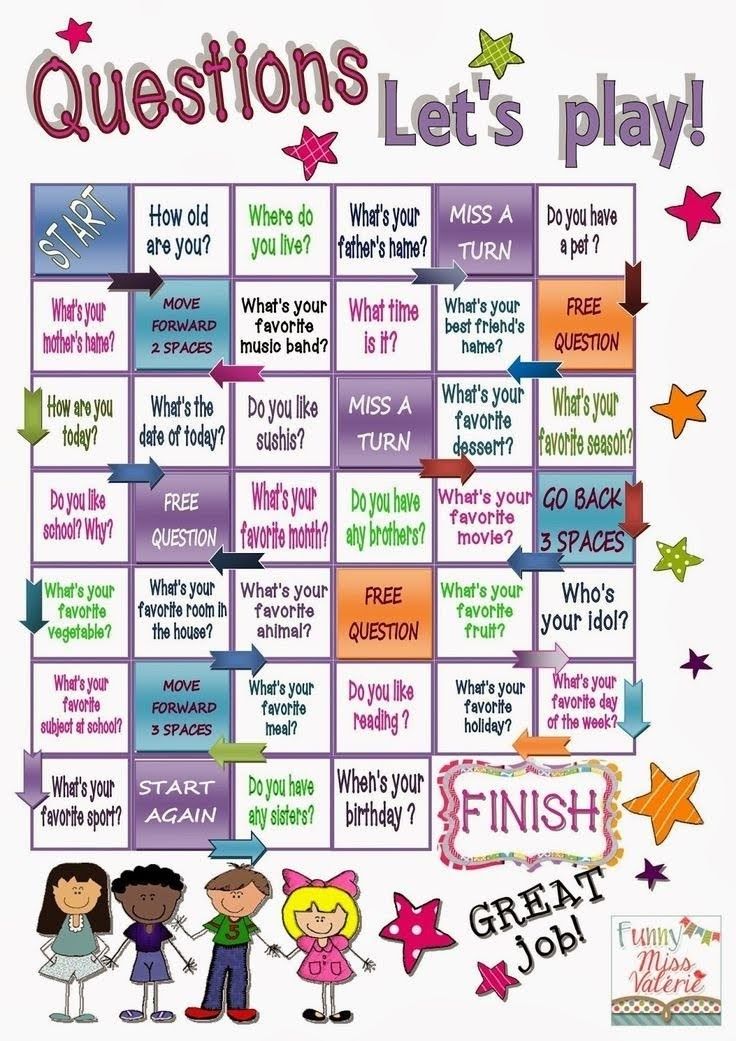
Advertisement | page continues below
Tell your child that it's not his fault. Children may blame themselves for the breakup, even if they don't say so. Your child might think the change is happening because he didn't clean his room or do well in school. He might also assume some responsibility for trying to fix the problem. Tell him flat out that the divorce is an adult decision and has nothing to do with him. Isolina Ricci, a psychotherapist who wrote Mom's House, Dad's House for Kids, offers this example of how to put it: "Sometimes things happen with mommies and daddies. We're really sorry that it happened, but it's not anything you've done."
Avoid the blame game. However angry you might be, don't blame your spouse for the breakup, and avoid arguing in front of your child. Also keep to yourself any details about an extramarital affair or financial problem. "You may feel so upset that you want to tell the child about your spouse's egregious behavior," says Klungness. But children will take this as a betrayal – or worse, criticism of them. If Dad calls Mom a "liar" or "cheat," they begin to see themselves, half the product of Mom, as half a liar, half a cheat. Rachel Sarah, mother of 8-year-old Mae and author of Single Mom Seeking: Playdates, Blind Dates, and other Dispatches of the Dating World, says, "I always try to remember that no matter what, my daughter is related to her father. Whatever I say about him will reflect on her."
But children will take this as a betrayal – or worse, criticism of them. If Dad calls Mom a "liar" or "cheat," they begin to see themselves, half the product of Mom, as half a liar, half a cheat. Rachel Sarah, mother of 8-year-old Mae and author of Single Mom Seeking: Playdates, Blind Dates, and other Dispatches of the Dating World, says, "I always try to remember that no matter what, my daughter is related to her father. Whatever I say about him will reflect on her."
Spare your child the details. Don't make your kitchen table divorce central. Keep divorce papers out of sight – especially from a child who can read – and don't discuss legal issues, even on the phone, when your child could overhear you. If there's a custody evaluation – which entails home visits by a mental health professional to observe and interview the child and family – minimize the impact by not building it up too much or coaching your child on what to say.
Answers to common questions about divorce
"What's a divorce?" Your basic response could go something like: "Divorce means Mommy and Daddy won't live together anymore. But we'll always be your parents, and we'll always love you."
But we'll always be your parents, and we'll always love you."
Gently try to find out what the children believe or know about divorce in general and what friends or schoolmates they know whose parents are divorced. This will help you understand the notions your children have about divorce and what fears they may harbor about losing friends, families, a parent, a home, or social standing.
While divorce is common, it can be awkward for your child at a time when kids are comparing themselves to each other and fretting about fitting in. Kimberly Turtenwald's children were toddlers when she separated from her ex and are now 6 and 9. Few of their classmates are in divorced families, and they sometimes feel envious of two-parent clans. "When they feel sad that their dad and I aren't together anymore, I make sure to emphasize how many people in their lives love them," she says. If there are examples of families in your community who co-parent successfully, says Ricci, and the children are well-liked and accepted by their peers, you can bring that up when the time is right.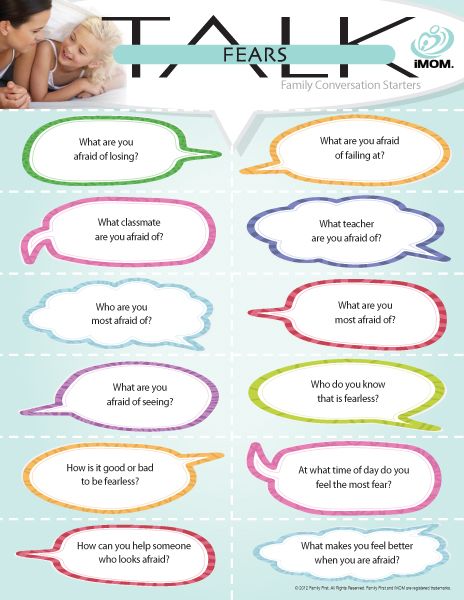
"Why are you getting divorced?" Don't go into too much detail and keep the emphasis on "we." Jennifer Horvath of Toronto, whose kids were 7 and 4 at the time of her separation, says, "I told them that since their father and I weren't getting along very well and we were all tired of fighting, I would find a new place for the three of us to live."
Avoid saying anything like "We don't love each other anymore," because your child might assume you can also "fall out of love" with her, says Klungness. That was a concern for Jennifer Cox of Spencerville, Ohio, whose children were ages 10, 6, 5, and 3 when she and her husband separated: "We did our best to assure them that parents love their children forever and that nothing can change that."
"I miss Mommy!" Even if you're relieved that your marriage is over, your child probably won't be (unless your partner was abusive or there was a lot of fighting). Don't be hurt when he pines for his other parent, and let him vent his sadness.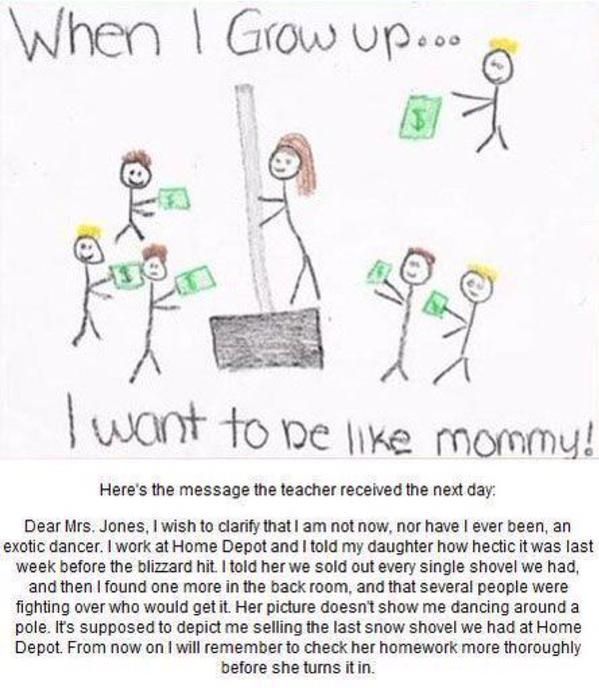 "I know you do, and Mommy misses you, too. Even though you don't see her as much, you can talk to Mommy every day. She isn't far away. You have your own special bed at her house, and you'll see her every week." Depending on your child's relationship with your ex's family, he may also need reassurance on questions like "Will I still see Grandma and Grandpa? Can I still go visit Uncle Bill?"
"I know you do, and Mommy misses you, too. Even though you don't see her as much, you can talk to Mommy every day. She isn't far away. You have your own special bed at her house, and you'll see her every week." Depending on your child's relationship with your ex's family, he may also need reassurance on questions like "Will I still see Grandma and Grandpa? Can I still go visit Uncle Bill?"
Often, the opposite will happen as well – while visiting your ex, your child will long for you. "There were a couple of times when my daughter called me crying from her dad's and asked me to pick her up because she missed me," recalls Susanna Cox. She explained to her daughter that since she only got to see her dad twice a month, she should try to relax and snuggle with him before deciding to come home.
"Where will I sleep?" At this age, your child will have a lot of questions about how his daily life will be affected: "Will I still go to my same school? What about Rover? Who's going to take me to gymnastics?" These may sound trivial to you, but they're very real concerns for him, so go over the details: "You'll still live with me here in our house, and so will Rover.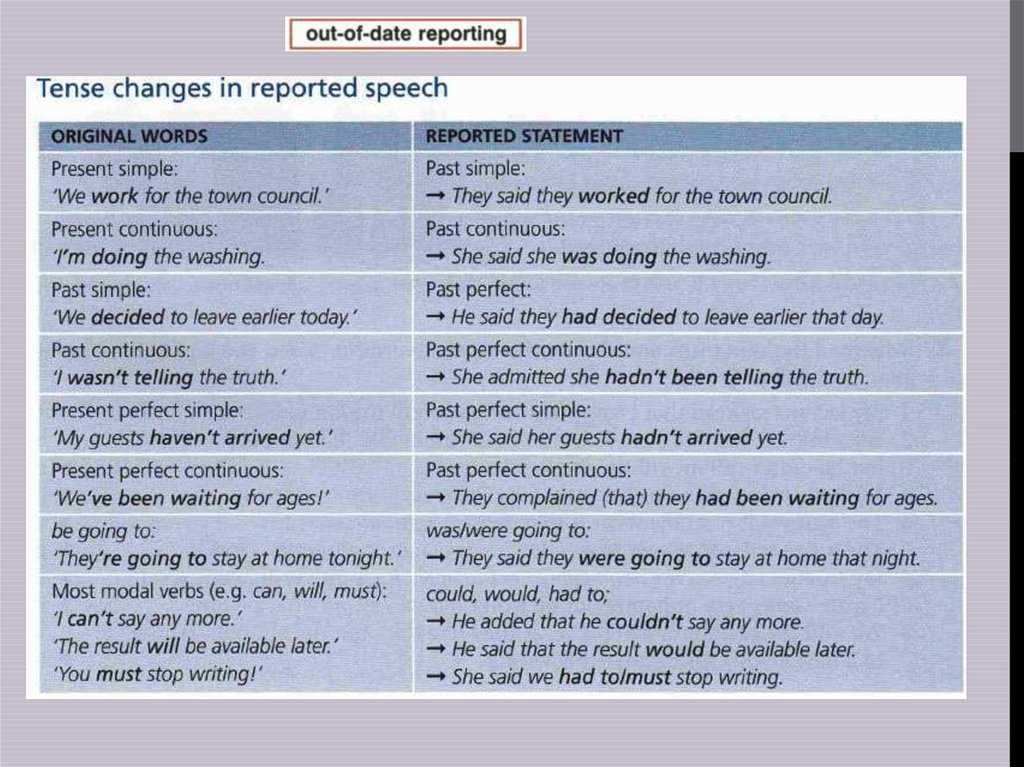 At Mommy's new house, you'll have your own special bedroom for when you visit."
At Mommy's new house, you'll have your own special bedroom for when you visit."
"Who will take care of Mommy?" Your child might have a sense of empathy that's developed enough for him to actually worry about the parent who is moving out. "Mikaela's biggest question was, 'Who will take care of Daddy?'" says Susanna Cox. "She was concerned that nobody would fix him lunch or dinner." Reassure your child that your ex will be just fine.
Jennifer Cox recalls her children asking, "Will Daddy be sad without us?" She says, "My ex and I came together as their parents and assured them that while Daddy would miss them when he wasn't with them, he wouldn't be sad because he would see them again very soon."
Next steps
Pour on the love. Divorce is difficult for children to understand and accept. While your child adjusts, he'll need a lot of your affection and attention. Resist the urge to talk constantly on the phone or let TV become the sitter.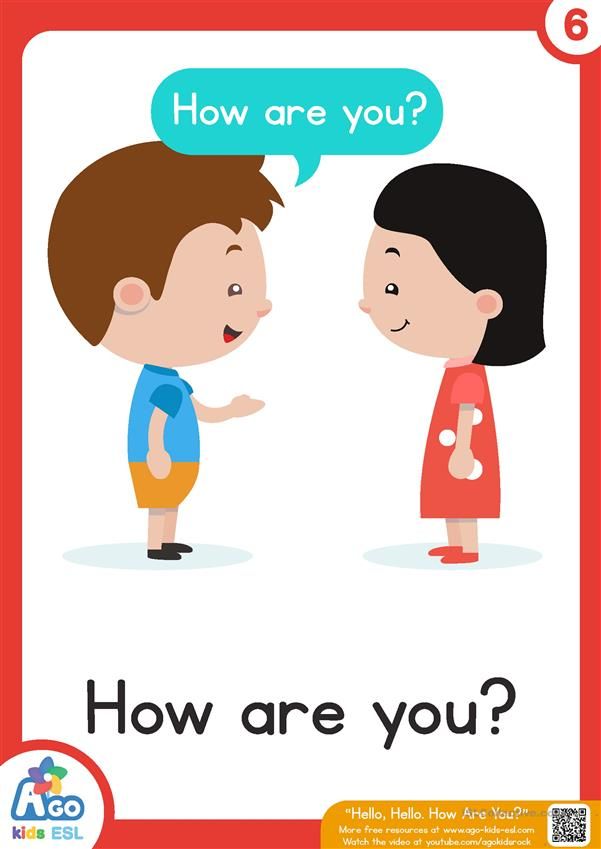 Give him more snuggle time or an extra story at night. Just as you benefit from your support network of relatives and friends now more than ever, your child needs extra hugs and kisses from you.
Give him more snuggle time or an extra story at night. Just as you benefit from your support network of relatives and friends now more than ever, your child needs extra hugs and kisses from you.
Keep talking. Even after the news has sunk in, be prepared to go over the same explanations and answer questions again and again, for weeks or even months. Make sure your child knows that you're open to questions about the divorce any time, even if what you really want is to stop talking about it. "If you want to know what your children are thinking and feeling, you have to spend time with them, to allow them to talk," says Klungness. One way to keep the lines of communication open is to read kids' books like Dinosaurs Divorce or Ricci's Mom's House, Dad's House for Kids.
Keep routines consistent. The disruption of divorce can make it difficult to maintain routines or even keep the house tidy. But continuing a child's regular schedule, in Mom's house and Dad's house, makes children feel safe. "As much as possible, basic mealtimes and other rituals should be the same between the two households," says Ricci. Make sure the kids keep going to school and any classes or practices – the more things remain the same for your child, the more stable he'll feel. Don't let things devolve into chaos. Horvath recalls that her home had been disorganized and dysfunctional. But post-separation, "the new house was much more organized, and my kids responded well to that," she says.
"As much as possible, basic mealtimes and other rituals should be the same between the two households," says Ricci. Make sure the kids keep going to school and any classes or practices – the more things remain the same for your child, the more stable he'll feel. Don't let things devolve into chaos. Horvath recalls that her home had been disorganized and dysfunctional. But post-separation, "the new house was much more organized, and my kids responded well to that," she says.
Look for signs of trouble. Your child may have difficulties adjusting to visitation and custody arrangements. Look for signs like misbehavior or withdrawal, particularly after a visit with the other parent. To open up a dialogue without putting words in your child's mouth, say something like, "I'm wondering if you're missing your Mom right now." Your child might just need time to transition from one household to the next or a safe way to vent.
Don't make your child a spy. When a child returns home from a visit, resist the temptation to pump him for information about what the other parent did or said. No matter how curious you may be, don't attempt to turn your child into a confidant.
No matter how curious you may be, don't attempt to turn your child into a confidant.
Be clear about the fact that Mom and Dad are not getting back together. School-age kids may also have strong fantasies about their parents getting back together. At this age, a child might also try to figure out how to make a reconciliation happen or reduce tension between parents. Be sure to avoid creating unrealistic expectations.
Consider seeing a family therapist to guide you and your child through this transition. Horvath took her two kids, then ages 4 and 7, to a therapist six months after the split. "It was the best thing I could have done," she says. "It gave them a safe place to ask questions or talk about things that they were afraid would upset me."
Make a point of remaining positive. If your divorce means, as it often does, that you're taking a financial hit and your kids can no longer have every toy they want or take expensive vacations, let them know you'll still do lots of fun things together.
Family Tree - 6 ways to help your child get over separation
1. GET INSTAGRAM. When you begin to actively go to work, and the child is three or four years old, make sure that he has an idea of \u200b\u200bwhere you are going, where you are going. Tell him about it. Not just - went to work, came home from work, for him it's nothing. And what exactly are you doing: “I left the house, got on the bus, went, came to where I work, I do this and that there, I go to lunch.” Everything is as detailed as possible. Moreover, now there is Instagram, you can take selfies and show them to your child.
2. TOUR THE OFFICE. Now many offices arrange a parent's day when you can come to work with your child. It is very good for children 4-5 years old to see the parent's workplace, this reduces his anxiety. When you bring a child, you explain to him in detail: here is my table, I am sitting here, here is your photograph, here I go to have dinner, here I am looking out the window.
Thus, when you are at work and the child is at home, he can imagine at that moment what you are doing now. It is much easier for him, because for him you do not disappear in this way, you exist at this time.
3. DRAW COMICS. If you are going on a business trip for several days, also explain to him where you will go for this time, what you will do there. Draw pictures about how you will think about him - the simplest pictures, you do not need to be an artist for this. The little man is you, the second little man is me. I am in another city, for example, in Chelyabinsk. And hearts fly from me to you. This means that I love you and think about you. These pictures of the child are soothing.
Be sure to try to bring gifts, souvenirs, and some things from your trips. Because for a child, this means that when you were somewhere, you thought about him, remembered him. This is also a materialization of the fact that when you were absent, you did not disappear, did not go anywhere, you are who you are, and you still love him, remembered him, brought him a train or a gingerbread, or something else, not necessarily that something expensive or big…
4. LEAVE SIGNS. When we accept this childhood trait, we can think of ways to physically or symbolically show the child ways to connect with us. If he is very small, you can leave him clothes with our smell - a bathrobe, a pillow, something to which he can cuddle and calm down, feeling our smell.
LEAVE SIGNS. When we accept this childhood trait, we can think of ways to physically or symbolically show the child ways to connect with us. If he is very small, you can leave him clothes with our smell - a bathrobe, a pillow, something to which he can cuddle and calm down, feeling our smell.
If this is a child a little older, about five years old, leave him symbolic signs of your attention. It can be a game, fantasies, boxes about love, “kisses” stuffed into pockets, or real notes with hearts in a pocket. Or little sweets that only you give him, that he can find during the day.
If the child is older, nine years old for example, and you are forced to leave, agree on some rituals - about what you will think of each other. Try to arrange Skype meetings, for example, at the same time. Try not to just say, “How are you? Lessons done? You can play something at this time so that it is a somewhat ritual pastime for him: on the one hand, constantly repeating, on the other, meaningful.
5. TALK ABOUT THE MEETING. And another important principle - when you part with a child, fix his attention on the moment of return. It is not obvious to the child that you will return. When you leave him in kindergarten, he is completely immersed in the moment of separation, you leave him, and for him it is horror. When you tell him: “Well, go, there are toys, children are playing, go to them” and so on - this does not console him. He is now experiencing separation, he is not up to children and toys. Fix it in advance at the time of the meeting. When you go to kindergarten, you discuss what you will do when you pick him up from kindergarten in the evening. “When I come for you in the evening, we will go home, on the way we will buy something in the store, we will have dinner, watch a cartoon, then I will put you to bed ...”
Describe as detailed and detailed as possible so that the child is psychologically fixed in the place and time when you return. The younger he is, the more specific. It is clear that for a small child, words like “soon” or “evening” mean nothing. You can say "when it gets dark" or something. When the child is older, you can already orient him by the clock. Be sure to record it at the time of the meeting.
It is clear that for a small child, words like “soon” or “evening” mean nothing. You can say "when it gets dark" or something. When the child is older, you can already orient him by the clock. Be sure to record it at the time of the meeting.
6. LOSE TOGETHER. If you stayed at home with your child, and dad, for example, went on a long business trip, then the child may yearn for him. Do not try to distract him by any means, and as soon as he starts to get bored and talk about it or make it clear about his feelings, immediately “tamp” everything. If the child says: “How I miss my dad! When will he arrive?" - help him to realize these feelings, join them. “Yes, I miss you too! I'm also looking forward to when he comes." But in order not to remain in this depressive note, say: “Let's figure out what we will do with you when dad arrives. Let's dream with you. Dad will come, we will go to meet him, or you will sleep at night, and then he will call, and we will be very happy, and we will bake a pie .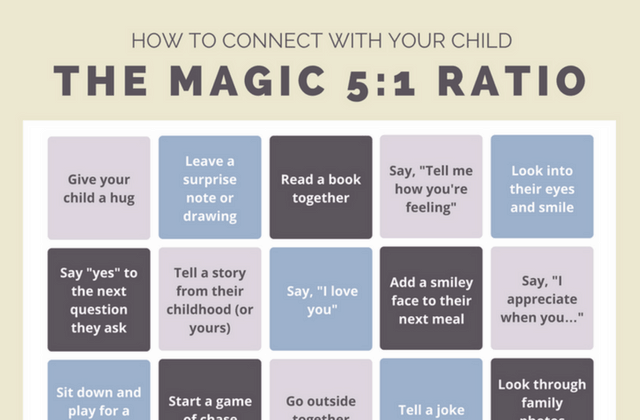 .. "
.. "
That is, again, we help the child, on the one hand, to recognize his feeling of sadness in separation, to accept that separation is bad. On the other hand, we throw a bridge and fix our attention at the moment of the meeting. And - discuss what dad is doing now, is he at work or already, if evening, probably, has come to the hotel and is thinking about you and me, and he is also lonely, let's write him a letter or send a text message, or I'll take a picture of you and send him by mail.
Help the child to recognize his feelings, not to hide them, not to freeze them, not to devalue them, but, recognizing these feelings, go out in anticipation of a meeting, not fixating on separation. When a child receives such help, he can experience separation without any serious consequences, especially since, as we have already said, he still needs to adapt to the fact that he is parting with us and gradually endures more and more periods of separation from us.
Drawbridge: how to maintain a relationship with a child if you separate from your spouse
When faced with a divorce, parents often do not know how to tell their child about this difficult decision for all family members. The Alpina PRO publishing house publishes the book Drawbridge with recommendations on how to help a child cope with emotions, aggression and fear of loss
The Alpina PRO publishing house publishes the book Drawbridge with recommendations on how to help a child cope with emotions, aggression and fear of loss
— Why did dad leave us?
- He didn't leave us. Together we decided to live separately.
- Why do people break up?
- For various reasons: someone no longer wants to be offended, and someone just lost love.
- How is Dasha with me?
- Approximately.
- And Dasha was crying.
- Why?
Because he still loves me. She's sad that I fell out of love with her.
— I understand that reciprocity is very important for relationships. It is unpleasant when a loved one loses interest in you
and stops supporting you. In general, this is pushing for parting. What would you do if you and a friend stopped playing together and began to constantly quarrel?
- Would stop talking to him.
- Dad and I can't stop talking - after all, we have you, but we also don't want to live in constant quarrels and conflicts, so we decided to leave.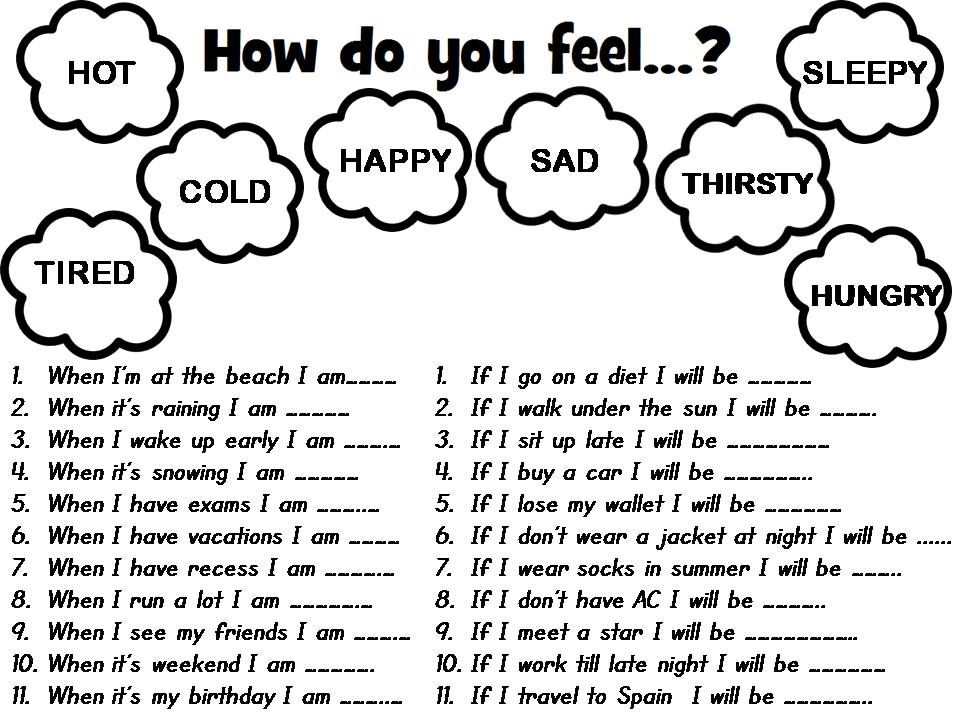
Lawyer Viktoria Dergunova:
According to statistics, the number of divorces is growing every year. Judge for yourself: in 2015, there were 611,000 divorces for every 1,161,000 marriages; in 2019, the registry offices registered 950,000 and 620,000 applications, respectively; in 2021 - 923,000 and 644,000. Of course, such high numbers in recent years could be explained by a pandemic, due to which most couples were forced to spend a lot of time together and discover each other from unexpected sides. The quality of relations could also be affected by stress caused by a change in the format of work, or even its loss, economic instability, as well as a general state of uncertainty against the background of the restrictions imposed. However, for the sake of justice, it should be said that this trend was outlined earlier. Over the past 10-15 years, divorce has ceased to be something reprehensible. People are becoming more and more comfortable with parting with a partner who no longer suits them.
Several factors contributed to this process. First, the previously existing social ban on divorce today has practically lost its restraining position. Secondly, such a basic function of the family as survival has lost its relevance. The well-developed infrastructure, equivalent education and access to leadership positions, which greatly simplified the satisfaction of everyday needs, opened up new opportunities for women that allowed them to gain financial independence from their spouses, depriving them of their usual power.
In today's world, women make careers on a par with men, and they don't have to wait until they fall in love. In raising children, nannies help them, with cleaning - cleaning services. What used to be financially accessible only to certain categories of families, today has become a familiar part of the daily comfort of the majority. And as you know, the higher the standard of living, the more non-material requirements put forward to the partner. It is no longer enough for modern women that the husband only earns a living, “does not drink and does not beat”, - common interests, a common environment and joint personal growth are important for many. In case of non-compliance with the requirements, decisions are no longer delayed.
And as you know, the higher the standard of living, the more non-material requirements put forward to the partner. It is no longer enough for modern women that the husband only earns a living, “does not drink and does not beat”, - common interests, a common environment and joint personal growth are important for many. In case of non-compliance with the requirements, decisions are no longer delayed.
A large number of divorces result in a change in the composition of families - more and more often they include ex-husbands and wives, half-brothers and sisters. In addition, the situation is complicated by the widely popular cohabitation without official registration of marriage. All this forces partners to reconsider their attitude to the birth and upbringing of children in favor of greater awareness and the need to negotiate on an equal footing, especially when they are integrated into new families.
Related material
Psychologist Olesya Pokusaeva:
Most often, children understand very well what triggered the breakup.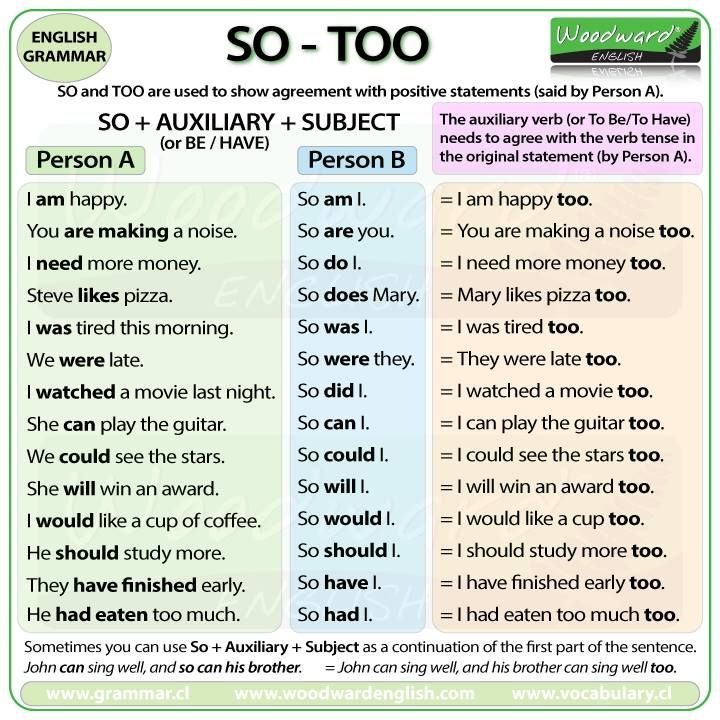 Such significant problems as alcoholism, drug addiction, assault, treason, criminal offenses, illnesses, financial difficulties, the ruin of one of the parents are difficult to hide from children's eyes. Despite understanding the reasons, children themselves are rarely able to give an independent assessment of the events that have occurred. And for sure, divorce for them is not a reason for the immediate cessation of love for their father or mother.
Such significant problems as alcoholism, drug addiction, assault, treason, criminal offenses, illnesses, financial difficulties, the ruin of one of the parents are difficult to hide from children's eyes. Despite understanding the reasons, children themselves are rarely able to give an independent assessment of the events that have occurred. And for sure, divorce for them is not a reason for the immediate cessation of love for their father or mother.
The risk of injury to the child is not the very separation of the parents as such, but the negatively charged information field around this event. There is nothing worse than when a wounded ex-spouse, experiencing pain and resentment, deliberately or unwittingly begins to take active steps to attract an ally in the person of a child to his side, repeating to him over and over again: We divorced because your mother went on a spree with another a man; We broke up because your father is an alcoholic (impotent, jerk, etc. ). It was impossible to live with him; Do you remember how your dad beat me and kicked you and your sister out into the cold? That's why I left; Your mother only wanted money from me; He was fixated on his career, our family was a hindrance to him, etc.
). It was impossible to live with him; Do you remember how your dad beat me and kicked you and your sister out into the cold? That's why I left; Your mother only wanted money from me; He was fixated on his career, our family was a hindrance to him, etc.
Such behavior of parents in psychotherapy is called retraumatization, that is, repeated traumatization. A child who happened to be a witness or victim of violent manifestations, become a participant in "combat operations" to determine who he will continue to live with, learn about treason, a negative act or a crime committed by one of his parents, has already received a traumatic experience that needs to be worked out with a psychologist. But instead of helping, the father or mother continues to hurt him, emphasizing the negative image of the former partner and condemning his behavior in every possible way.
Such a position deprives the “guilty” parent not only of the right to forgive the child, but also of the opportunity to change for the better — to stop drinking, cheating, committing violence, and the child may subsequently form a prejudice about the impossibility of correcting his own mistakes (this will not change anything anyway). ; people do not change; I am who I am), destroy the relationship with the second parent and lead to the perception of the image of the family as a combination of pain, suffering and problems.
; people do not change; I am who I am), destroy the relationship with the second parent and lead to the perception of the image of the family as a combination of pain, suffering and problems.
So how is it right to tell a child about the reason for the divorce, if it is extremely unpleasant and discredits the partner? The simplest and most honest explanation: I can no longer live with this person together. We are different people, and our views on the world and on life are very different, we have nothing in common. Such formulations help to avoid re-traumatization of the child and demonstrate to him that the parent has taken responsibility for the decision made.
But what to do if, after all, the origins of the separation of the parents remained unnoticed by the child and this news turned out to be a bolt from the blue for him? It is necessary to understand that the reason for divorce at the time of the breakup of the family is not so important for him, therefore it is not at all necessary to reveal to him the true reasons for what happened (for example, to talk about treason) and to expose the partner as unambiguously wrong and guilty. Perhaps, over time, he will have a need to understand what happened, but not now. Until the age of five, by and large, children generally do not have the skills to generalize and analyze the information received. They are unable to calculate the long-term consequences of even their actions, let alone give an adequate assessment of the actions of their parents during a divorce against the background of the complete external well-being of the family. Therefore, leave this difficult topic for later, gradually he will figure it out and correlate the figures of mom or dad with their way of life outside the family - criminal activities, alcohol or drug use, etc.
Perhaps, over time, he will have a need to understand what happened, but not now. Until the age of five, by and large, children generally do not have the skills to generalize and analyze the information received. They are unable to calculate the long-term consequences of even their actions, let alone give an adequate assessment of the actions of their parents during a divorce against the background of the complete external well-being of the family. Therefore, leave this difficult topic for later, gradually he will figure it out and correlate the figures of mom or dad with their way of life outside the family - criminal activities, alcohol or drug use, etc.
Related material
Many parents, out of a once-for-a-life principle or out of fear of divorce-related difficulties, make the strange decision to build a so-called safety dome for their child by nurturing the illusion of a happy family. However, as the child develops, his identity is formed, and the need for obtaining more complete and truthful information about the behavior of adults and the emotions they transmit, such a dome will inevitably crack. Faced with reality, especially when it has nothing to do with the world created by adults, it hurts at any age. But, believe me, the sooner the child learns the truth, the more chances he has to come to terms with it.
However, as the child develops, his identity is formed, and the need for obtaining more complete and truthful information about the behavior of adults and the emotions they transmit, such a dome will inevitably crack. Faced with reality, especially when it has nothing to do with the world created by adults, it hurts at any age. But, believe me, the sooner the child learns the truth, the more chances he has to come to terms with it.
Each situation is unique, so talking about general and universal solutions does not make sense. If you don't know how to tell your kids why you're getting divorced, don't Google or ask friends and family for an answer. It is much better to turn to a child psychologist for advice, describe the situation, the characteristics of the child and jointly find the best solution for him.
Psychologist Oksana Afinogenova:
Variants of parents' messages in a conversation with a child about divorce.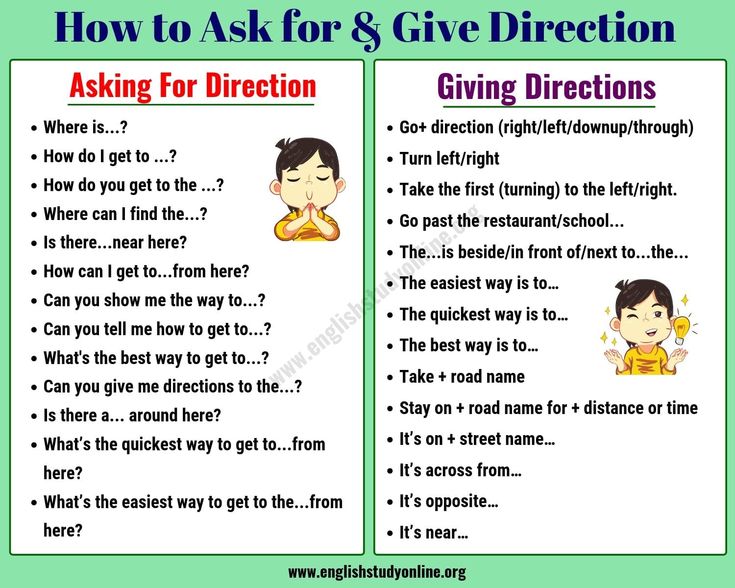
It became difficult for me and my dad/mom to live together, and we decided to leave, but we really hope that this will not affect you too much and, most importantly, your relationship with each of us. We both love you very much and will continue to love you just as much forever.
We will take care of you, you can contact any of us with all your doubts, fears and anxieties. We will help you resolve any issues and will not leave you alone with your worries. Your feelings are important to us. We need you. We love you in any way and will always love you.
Father (mother) is moving away from us. He (she) will no longer live with us, but will come to visit us as often as you want to see him (her).
I will always be with you.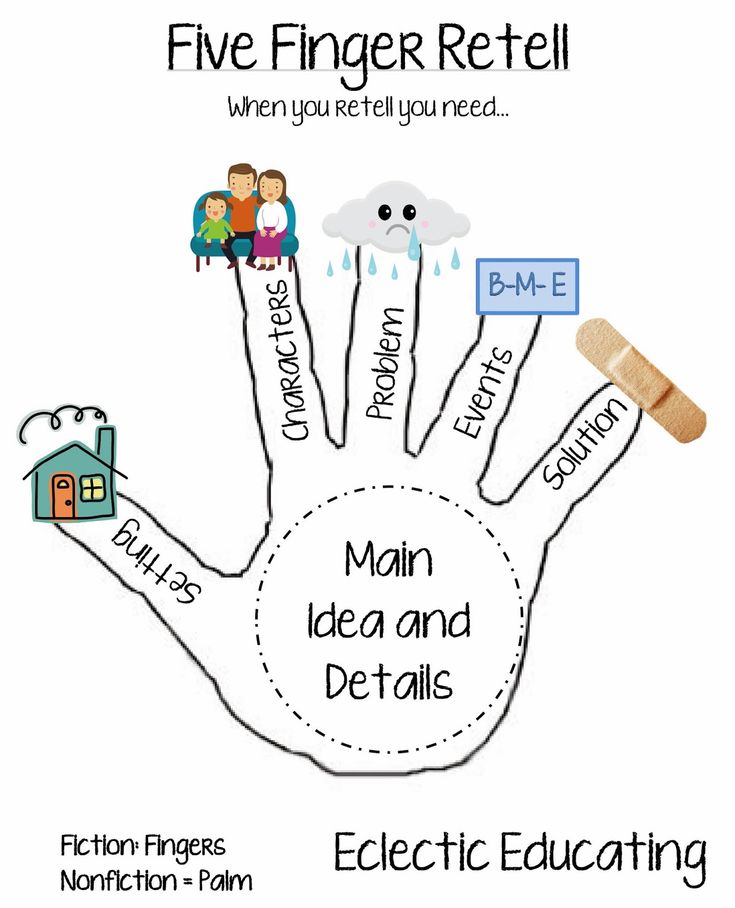 You are a part of me, my life, no matter what happens, and no matter what happens, I will be there.
You are a part of me, my life, no matter what happens, and no matter what happens, I will be there.
Lawyer Anastasia Prokopova:
In Russia, the court does not find out the reasons for the dissolution of a marriage, nor does it refuse a divorce if one of the spouses insists on it. But even if one of the parties does not agree or asks the court to establish whose fault the family is breaking up, the clarification of these circumstances is formal. As a rule, decisions are limited to standard formulations: family life did not work out, marital relations were terminated.
This divorce process in Russia is fundamentally different from the practice of dissolution of marriage in the vast majority of foreign countries (Italy, France, etc.), where the behavior of spouses in the family, the reasons for their separation and the presence of guilt of each can be important not only for resolving the issue of unequal division of property, but also on the exercise of custody rights and access to children.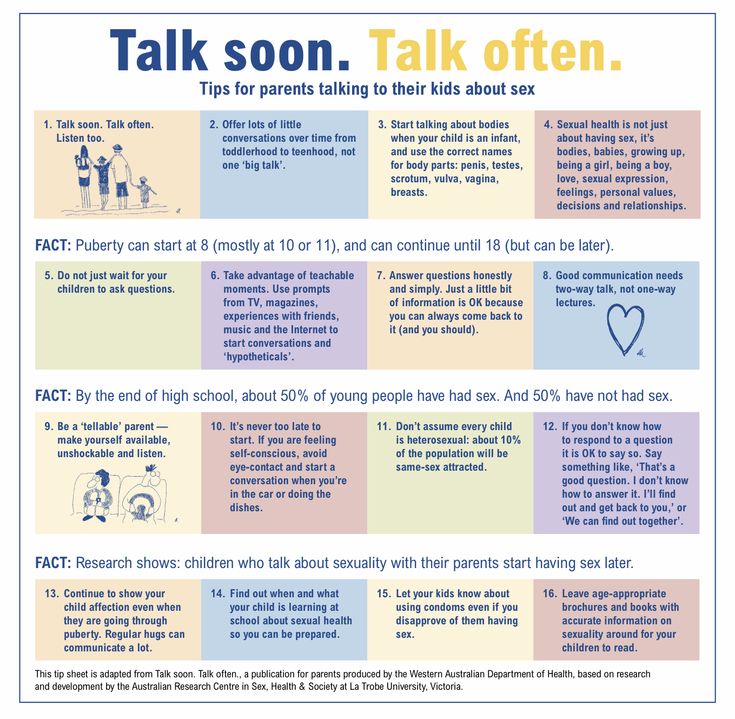
Many parents believe that a detailed description of the circumstances of their lives and a description of the nature of the relationship that has developed between them can strengthen their legal position in a dispute about raising children. However, the enumeration of accumulated grievances and unresolved disputes, the search for the wrong and the guilty will not become the basis for refusing to determine the procedure for communicating with the child to a separately living parent. Even if it was he who initiated the divorce - a man who decided to leave the family, leave his wife and child. Exceptions are the actions of a parent that threaten the life and health of a minor or members of his family, and the statement in connection with this requirement to limit or deprive him of parental rights.
Parents should remember that the most negative emotions towards each other, experienced by them at the time of divorce and provoking them to adverse actions and involving the child in the divorce process, will pass, and the consequences of their actions for a long time, if not forever, will remain in his memory.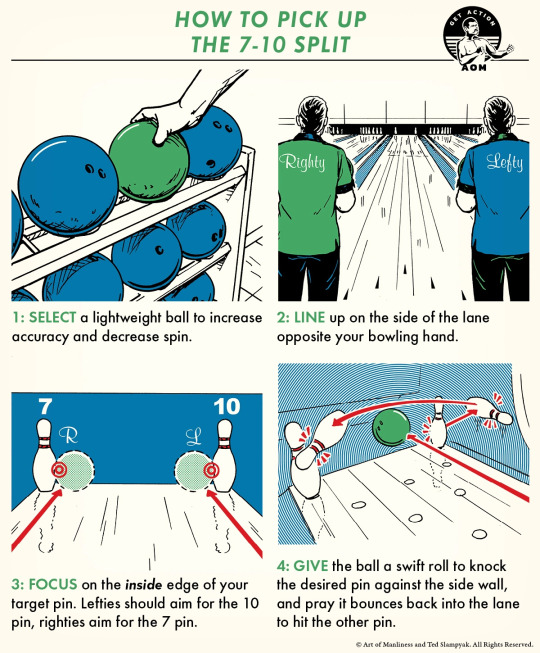 In addition, we should not forget: when parents resort to public defense of their interests, the child's life history becomes public. In these cases, children are subjected to double trauma: when discussing the events taking place in their lives at home and in society - friends, teachers, educators.
In addition, we should not forget: when parents resort to public defense of their interests, the child's life history becomes public. In these cases, children are subjected to double trauma: when discussing the events taking place in their lives at home and in society - friends, teachers, educators.
Related material
An alternative way to resolve a family conflict is to seek help from a third party - a professional mediator. Being neutral and independent of the parties, he can facilitate the process of their discussion of all issues related to the upbringing of the child: with whom he will live after the divorce, how his communication with the other parent will be built, how much alimony will be paid for his maintenance, etc. Unlike court proceedings, in which the child's opinion is mandatory, the mediation procedure is informal, flexible and allows parents to resolve issues that have not been legally settled without their direct involvement.






